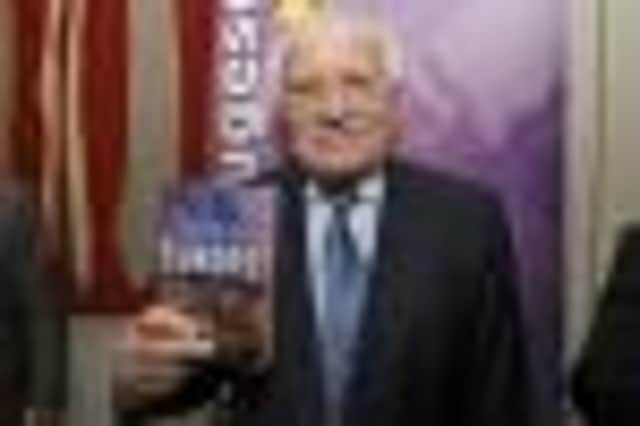Scotland would struggle to retain currency union with UK says man who helped to engineer break-up of Czechoslovakia


• Currency union between Czech Republic and Slovakia after split lasted only weeks
President Klaus, who was instrumental in breaking up Czechoslovakia, made his comments at an event in the Commons where he was launching the English translation of his eurosceptic book Europe: Shattering the Illusions.
Advertisement
Hide AdAdvertisement
Hide AdAsked about the prospect of Scottish independence the President said that it was possible to break a country up in “a smooth and friendly way” but pointed out that the two countries had failed to maintain currency union.
After the break up in 1993 it took just 38 days for the currencies to have to be separated even though currency union was meant to last at least six months, at which point the smaller country Slovakia was forced to devalue.
President Klaus said: “We were afraid of the loss of our economic relations.
“So we decided to keep the customs union, we decided to keep the free trade area and we wanted to keep the monetary union.
“I always argue that I am an expert on the dismantling of monetary unions. We wanted to keep Czechslovak (Koruna) for the future but after six, seven weeks we understood that it is really impossible.”
He added: “No-one believes me in Europe but to separate the two currencies was a simple administrative thing to do.
“The separation of the currency was a non-event. People don’t remember the next day. Nothing happened.”
He also said that during his time overseeing the separation of the countries he had wanted to “make the split as smooth and as friendly as possible which is something that we did.”
He added: “We called our divorce a velvet divorce.
Advertisement
Hide AdAdvertisement
Hide Ad“It is better to have a velvet divorce than to live together in an unfriendly way.”
Pro-UK parties pointed out that if the Czech Republic and Slovakia could not maintain a currency union Scotland would face problems with the rest of the UK.
Labour pointed out that it took 3,000 treaties to agree the break up of Czechoslovakia.
Labour shadow Scotland Office minister Willie Bain said: “Alex Salmond has said Scotland could just keep using the pound but the reality is that currency union is almost impossible to have without political union and that is what the Czechs and Slovaks quickly discovered.”
Spokesman said:
The Treasury meanwhile pointed to figures which showed that protectionism grew between the Czechs and Slovaks in the first decade of separation. Between 1993 and 2003 Slovakian exports to the Czech Republic had fallen from 42 per cent of all exports to 13 per cent while Czech Republic exports to Slovakia fell from 22 per cent of total exports to eight per cent. Currently 59 per cent of Scottish exports are to the rest of the UK.
A Treasury spokesman also added that the euro has had suffered because of a lack of political union to support currency union.
He said: “The lesson of the Eurozone crisis is that you cannot have monetary union without significant fiscal and political integration. The UK is already one of the most successful monetary and political unions in the world and Scotland is better off as part of that.”
Alex Salmond has previously sited examples such as the former Benelux currency union prior to the creation of the European Union as showing that a currency zone of separate countries made up of similar economies can work.
Advertisement
Hide AdAdvertisement
Hide AdAnd dismissing the claims from political opponents yesterday, an SNP spokesman said: “The Edinburgh Agreement ensures that an independent Scotland will be achieved in a totally agreed and consented way - with the support of Westminster as well as Holyrood - should we be successful in securing a Yes vote in 2014. The Scottish Government’s clear policy is to have a formal sterling zone post-independence, which would be in the economic interests of the rest of the UK as well as Scotland - not least given the strong contribution of Scottish oil and gas to the UK’s balance of trade.”